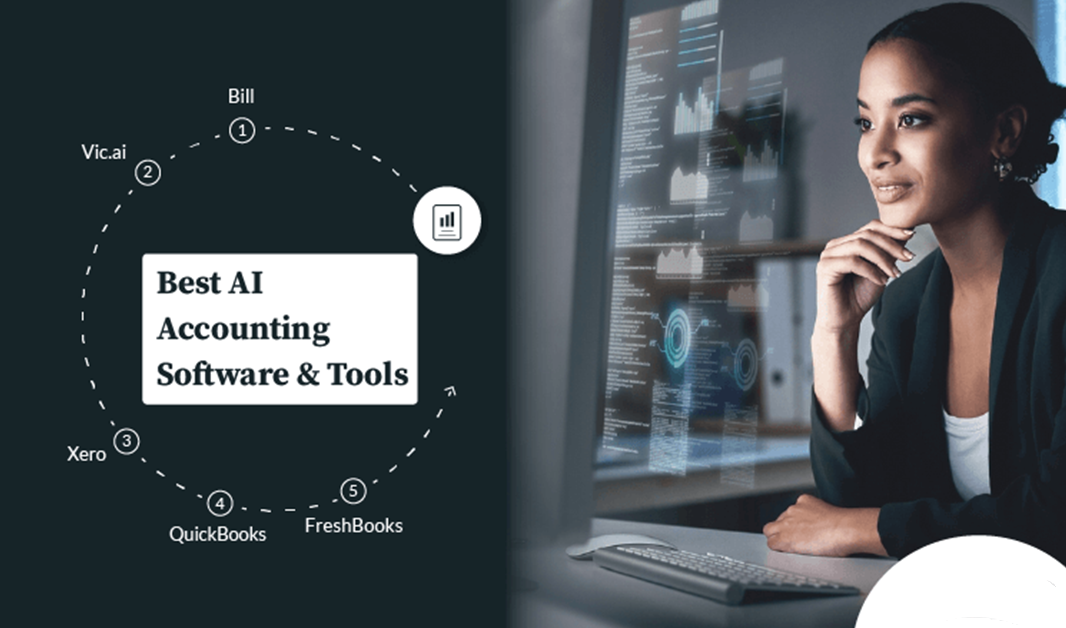
How AI Accounting Trends to Watch in 2025 Will Reshape Finance
In 2025, expect smarter automation, real-time analytics, predictive insights, and seamless compliance driving AI accounting forward.
The accounting industry is on the brink of a seismic shift, driven by artificial intelligence. By 2025, AI will no longer be a supplemental tool but the core engine powering financial operations, transforming how businesses forecast, comply, and strategize. For finance teams, this evolution promises unprecedented efficiency—but only for those prepared to adapt. Here’s a deep dive into the AI accounting trends poised to redefine the profession in the coming year.
Hyper-Personalized Financial Forecasting
Traditional financial models, which rely on historical data and linear projections, will give way to AI systems capable of simulating thousands of scenarios in real time. These platforms will ingest unstructured data—social media sentiment, geopolitical events, supply chain disruptions—to predict cash flow fluctuations with surgical precision. A retail chain, for instance, might use AI to model the financial impact of a monsoon season on regional sales, adjusting inventory orders and staffing months in advance. This shift from reactive to proactive planning will empower even small businesses to navigate volatility like Fortune 500 enterprises.
Self-Healing Compliance Systems
Regulatory frameworks are growing more complex, with tax laws and sustainability reporting standards evolving quarterly. AI-powered compliance tools will automate this chaos by scanning global regulatory updates in real time and adjusting accounting practices autonomously. Imagine software that reclassifies expenses to align with new tax codes or instantly generates ESG reports tailored to EU’s CSRD or California’s climate mandates. For multinational firms, this means eliminating the risk of million-dollar penalties due to overlooked regional filing requirements—a game-changer in an era of aggressive corporate accountability.
AI as a Collaborative Tax Strategist
By 2025, AI won’t just crunch numbers—it will craft tax strategies. Advanced systems will analyze cross-border transactions, R&D credits, and R&D deductions to identify savings opportunities invisible to human accountants. A tech startup expanding to Southeast Asia, for example, could receive AI-generated advice on optimizing transfer pricing or leveraging Singapore’s R&D tax incentives. These platforms will also simulate audits, stress-testing financial records against potential IRS or GST scrutiny to preemptively fix vulnerabilities.
Voice-Activated Financial Governance
Natural language processing (NLP) will make accounting tools as intuitive as chatting with a colleague. Non-experts will query systems using plain language: “Show me unpaid invoices from clients in Delhi,” or “Will we hit Q3 profit targets if raw material costs rise 10%?” AI will respond with synthesized insights, pulling data from ERP systems, emails, and receipts. This democratization of financial data will empower department heads—from marketing to operations—to make budget decisions without waiting for CFO approvals.
Blockchain-Backed Audit Trails
The marriage of AI and blockchain will eliminate audit anxiety. Every transaction, from a $10 office supply purchase to a multimillion-dollar merger, will be logged on an immutable ledger. AI will then analyze these records in real time, flagging anomalies like duplicate payments or unauthorized approvals. Auditors will receive pre-verified, AI-summarized reports, cutting traditional audit timelines by 70%. A manufacturing firm, for instance, could trace a disputed payment through its entire lifecycle—from purchase order to bank settlement—in seconds.
Ethical AI and Transparent Decision-Making
As AI’s role expands, so will demands for transparency. Explainable AI (XAI) frameworks will become standard, detailing how algorithms arrived at specific recommendations—e.g., why certain expenses were flagged as fraudulent or how tax savings were calculated. This transparency will be critical for stakeholder trust, particularly when justifying AI-driven decisions to boards or regulators. Platforms might even generate plain-language reports like, “Recommended delaying equipment purchases to Q2 due to predicted cash flow dip from client X’s delayed payment.”
The Rise of Autonomous Finance Teams
Routine tasks—approving expense reports, reconciling bank feeds, processing payroll—will become fully autonomous. AI “agents” will handle these workflows end-to-end, escalating only exceptions to humans. A mid-sized company might reduce its finance team from 15 to 5, reallocating talent to strategic roles like AI governance or financial innovation. This autonomy extends to payments: AI will negotiate early-payment discounts with vendors or auto-settle invoices via smart contracts, optimizing cash flow without human intervention.
Climate-Accounting Integration
With climate disclosure mandates going global, AI will automate carbon accounting and sustainability reporting. Systems will calculate emissions across supply chains, suggest cost-effective reduction strategies (e.g., switching to Supplier Y for 30% lower carbon footprint), and align financial planning with net-zero goals. A food manufacturer could use AI to balance the cost of biodegradable packaging against potential tax incentives and brand equity gains.
The Human Edge in an AI-Dominated Field
Paradoxically, AI’s rise will elevate—not erase—the human accountant’s role. Professionals will shift from data entry to interpreting AI insights, mediating ethical dilemmas, and crafting narratives around financial data. The CPA of 2025 might spend their days validating AI-generated forecasts for stakeholder presentations or designing custom AI models for niche industries like aquaculture or Web3 ventures.
Preparing for the AI-Driven Future
Businesses lagging in AI adoption will face existential risks—from inaccurate forecasts to compliance blowbacks. Early adopters, however, will unlock agility previously unimaginable. The key lies in viewing AI not as a cost-cutting tool but as a collaborative partner that amplifies human expertise.
By 2025, accounting will cease to be about balancing books and become about balancing possibilities. AI will handle the math; humans will master the meaning. The question isn’t whether your organization will embrace these trends, but how quickly you’ll turn them into competitive advantage.